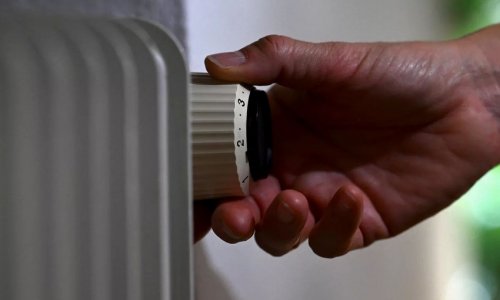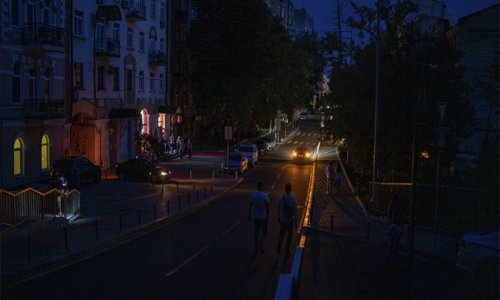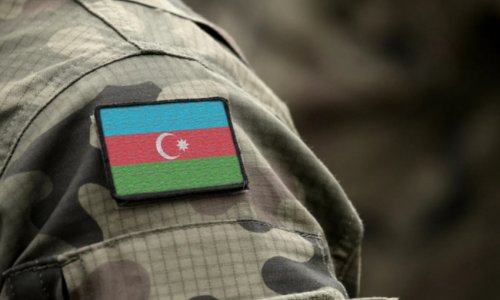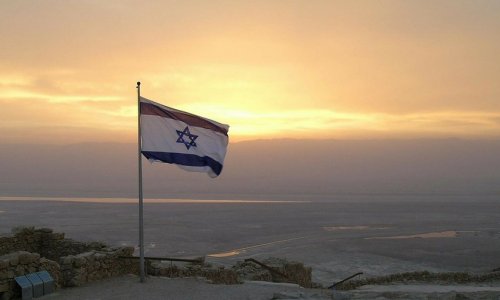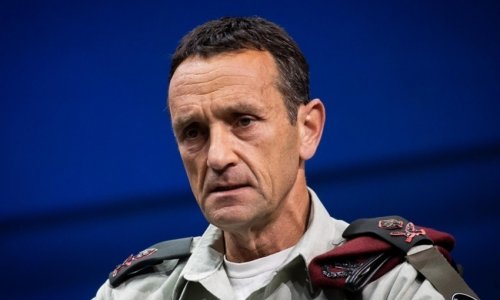Follow us !
Joy in the face of hardship - PHOTO
World
18:31 | 13.12.2013
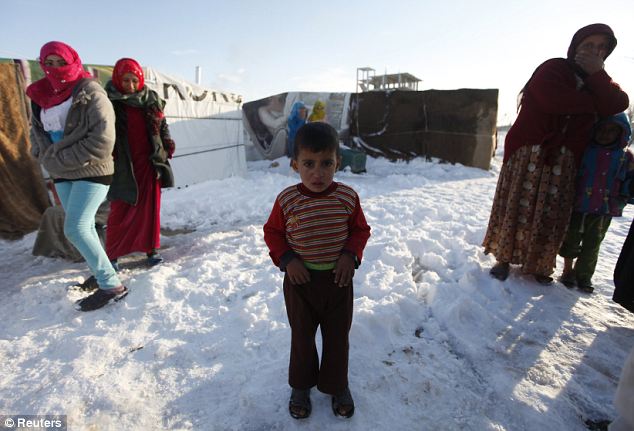
Joy in the face of hardship - PHOTO
In a makeshift camp a few miles from the border in Lebanon's Bekaa Valley, Ibrahim sat in his tent where the dirt floor had turned to mud.Strong winds blew snow in the entrance and children huddled in one corner around a fire in a metal crate.The season's first snow settled in parts of Lebanon this week, giving refugee children who have fled the war in Syria the opportunity for a snowball fight outside their tents.But, children's games aside, the winter weather heaped another layer of misery on the already grim existence of many of the estimated one million Syrians in Lebanon who have fled the civil war raging in their homeland.This week's storm, dubbed Alexa, pushed temperatures below freezing in northern Lebanon and some areas of the Bekaa Valley, which is dotted with informal refugee settlements.'We are extremely concerned for the refugees this winter that promises to be very harsh,' Dana Sleiman of the U.N. High Commissioner for Refugees told The Associated Press.Since the Syrian conflict began in March 2011, more than two million Syrians - at least half of them children - have fled the violence in their homeland to neighboring countries like Lebanon, Jordan, Turkey and Iraq.Many will spend the winter in flimsy tents with often only a plastic sheet covering the ground.Ibrahim, who declined to give his last name, says his family does not have enough money for food or to build a sturdier shelter at the camp, which is home to around 1,000 of his compatriots.Outside his tent, men filled bags with dirt to hold down tent shelters and placed car tires and bricks atop the flimsy wooden structures to prevent the wind from tearing them apart.Elsewhere, in another nearby camp in Bekaa, around 200 Syrian refugees live in huts and derelict buildings at the foot of a mountain.They are housed in structures walled with scrap wood and poles, with roofs of plastic sheeting held down with ropes and tyres; they too are slowly freezing to death.Ahmad Hasan, a 25-year-old business studies graduate living there, told The Times: 'We have no heating oil, few warm clothes. We have had to hunt for scraps of wood to keep us warm. It has been terrible in every way.'He said that he and his fellows had been able to find work as agricultural labourers in the summer months, harvesting vegetable crops.'When we picked potatoes, we kept the bad ones and stored them for winter, so we have something to eat when there is no work,' he said.In Lebanon, more that 835,000 refugees live in tented camps, unused buildings or with friends or family, according to figures from the UN High Commission for Refugees. The government of the country of just 4.5million people estimates the numbers to be much higher, at around 1million.Unlike in Turkey, Jordan and Iraq, the Lebanese government is not providing facilities or land to temporarily accommodate refugees despite the continuing influx, which has effectively increased the population of the country by 25 per cent.Many Syrians in Lebanon live in appalling conditions, finding shelter in slums, tents and tin shacks strung with laundry lines and wedged between farmland outside towns and cities.In the capital, Beirut, many Syrians live in underground parking lots, under bridges and on old construction sites with no running water, sanitation, electricity or protection from Lebanon's sizzling summers and its freezing winters.The country has a troubled history of hosting refugees. Palestinian families who were forced from their homeland in 1948 by the newly established state of Israel still live in squalid refugee camps across Lebanon.Their presence was seen by some as disrupting Lebanon's delicate sectarian balance and a contributing factor in the 1975 to 1990 civil war that devastated the country.Now some Lebanese worry that if official camps are set up for the latest flood of refugees from Syria, they too could become as established as those housing Palestinians.So, for now, aid agencies can help the Syrian newcomers with food, tents, blankets and clothes but they cannot set up formal refugee camps.Ibrahim, who arrived last week, said the aid is not sufficient for the new arrivals.'We came here in the winter but it would have been better if we had stayed in Syria. At least if you die, you die in your own house,' he said.In Marj, a Lebanese town near the border with Syria, refugees on Wednesday were piling up extra layers of plastic bags and tarps supplied by the UNHCR in an effort to reinforce their tents.'I don't know if this tent will hold up, it's just a few flimsy pieces of metal holding it up,' said Abu Suleiman, eyeing his tent with worry.Abu Suleiman, who only agreed to give his nickname, has lived in the settlement with about 40 other families since fleeing the Damascus suburb of Jisreen five months ago with little more than the clothes on his back.Ms Sleiman of the UNHCR said that at least 80,000 Syrians in Lebanon will spend the winter in tents.With no end to the conflict in sight and dwindling international support to help Syria's neighbors cover the costs and burden of providing for influx, many of the refugees now worry about how they are going to survive the winter.'We used to be scared of wolves coming inside the tents at night,' said Umm Mohammad, a 45-year-old refugee from the contested Damascus suburb of Daraya. 'Now there's so much more to worry about. ... How will we survive the winter?'Simon Ingram, a spokesman for the U.N. Children's Fund, said the agency has been able to mobilise winter supplies for Syrians in Lebabon and elsewhere but 'the needs will outstrip what we and our partners are able to provide.'The start of winter coincides with a polio vaccination campaign that seeks to vaccinate 750,000 children in Lebanon after an outbreak of the disease was confirmed in eastern Syria in October.'Polio spreads through water and sewage,' Ingram said. 'This is one the big dangers - overflowing drains.'Chief of Lebanon's Meteorological Department, Mark Whaybeh, said that in past years, snow and rainfall had increased and temperatures decreased over December and into January.'We are still at the beginning of the season,' he said. 'We should have rain and cold periods during the next two months.'Mr Whaybeh said Alexa will last until tomorrow night and that temperatures could plummet to minus-7C in some mountainous areas of Lebanon.Minister for Social Affairs Wael Abu Faour said the government was 'trying its best' and that the army had been called in to make refugee shelters ready for winter.He told Reuters his main worry was that some refugees are living in a flood area near the Litani river.'Abu Faour said he was trying to rehouse refugees near the river, which flooded during storms in January but that so far there was no place available.'It's beyond our capacity,' he said. 'We tried mosques, we tried schools, we have tried everything. It will be a disaster.'(dailymail.co.uk)ANN.Az

